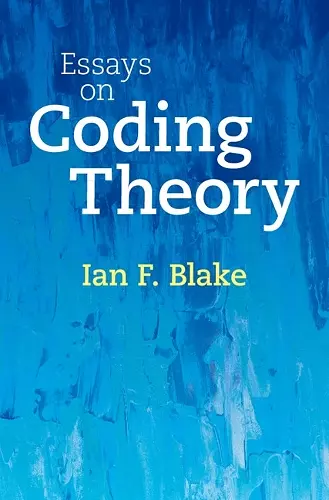Essays on Coding Theory
Format:Hardback
Publisher:Cambridge University Press
Published:14th Mar '24
Currently unavailable, and unfortunately no date known when it will be back

Brief informal introductions to coding techniques developed for the storage, retrieval, and transmission of large amounts of data.
Critical coding techniques have developed over the past few decades for data storage, retrieval and transmission systems, yet they are rarely covered in the graduate curricula. This book provides new researchers in academia and industry with informal introductions to the basic ideas of these topics, including pointers to further reading.Critical coding techniques have developed over the past few decades for data storage, retrieval and transmission systems, significantly mitigating costs for governments and corporations that maintain server systems containing large amounts of data. This book surveys the basic ideas of these coding techniques, which tend not to be covered in the graduate curricula, including pointers to further reading. Written in an informal style, it avoids detailed coverage of proofs, making it an ideal refresher or brief introduction for students and researchers in academia and industry who may not have the time to commit to understanding them deeply. Topics covered include fountain codes designed for large file downloads; LDPC and polar codes for error correction; network, rank metric, and subspace codes for the transmission of data through networks; post-quantum computing; and quantum error correction. Readers are assumed to have taken basic courses on algebraic coding and information theory.
'This book is an essential resource for graduate students, researchers, and professionals delving into contemporary topics in coding theory not always covered in textbooks. Each expertly-crafted essay offers a clear explanation of the fundamental concepts, summarizing key results with a consistent notation, and providing valuable references for further exploration.' Frank R. Kschischang, University of Toronto
'This volume lives up to its title: it explores many modern research directions in coding theory without always insisting on complete proofs. Prof. Blake nevertheless manages to explain not only the results themselves, but also why things work the way they do. This volume will be a wonderful supplement to in-depth presentations of the topics that it covers.' Alexander Barg, University of Maryland
'This book provides an excellent and comprehensive presentation of 16 major topics in coding theory. The author brings the highly mathematical subjects down to a level that can be understood with basic knowledge in combinatorial mathematics, modern algebra, and coding and information theory. It can be used as a textbook for a graduate course in electrical engineering, computer sciences, and applied mathematics. It is also an invaluable reference for researchers and practitioners in the areas of communications and computer sciences.' Shu Lin, retired from University of California, Davis
'This very unique contribution by Prof. Blake consists of a collection of essays on coding theory that can be read independently and yet are coherently written. It covers a comprehensive list of topics of interest and is an excellent reference for anyone who is not an expert on all of these topics.' Raymond W. Yeung, The Chinese University of Hong Kong
'Blake's book is truly commendable and deserves high praise. We highly recommend it to anyone interested in modern coding theory, as it covers a broad range of current topics with reasonable depth and clarity. This book would be particularly valuable for professors teaching graduate or specialized courses on coding theory, providing a solid foundation and extensive resources for both teaching and further study. The book remains an excellent resource and a highly engaging read. Its comprehensive coverage and clear explanations make it a significant contribution to the field, and it will undoubtedly be a valuable asset for both students and educators alike. In summary, Blake's work stands out as a pivotal text that not only enhances understanding but also fosters a deeper appreciation for the complexities and innovations in coding theory.' SIGACT News
ISBN: 9781009283373
Dimensions: 234mm x 158mm x 30mm
Weight: 840g
474 pages